PREFACE
In writing my reminiscences of Life in Constantinople I leave been under the disadvantage of depending almost entirely on memory. When I was compelled to leave Turkey in then middle of last December I was unable to bring away memoranda and books which would have enabled me to fix dates, to give correct spelling of names of persons and places, and would have recalled a hundred circumstances, which without such aids I am unable to relate with desirable exactitude. This is all I have to add by way of excuse for any inaccuracies and shortcomings in my book.
I could have added many more reminiscences of visitors who have me the pleasure of seeing them, some of them men and women whom all England delights to honour. Merely to mention their names would lay one open to a charge of sycophancy. To relate conversation with them would be a breach of confidence. If, for example, I should tell the story of one of our legislators who made all haste to get away from the city because he learned that Abdul Hamid proposed to invite him to dinner, and who gave as his reason for getting away that if invited he could hardly refuse, and that if he accepted he would lose all nonconformist votes, I should have to miss the point of my story unless I mentioned the name, which I should not be justified in doing.
Had space permitted, I should have liked much to speak at length of visits : of that of Miss Isabel Fry, who spent time and money for the benefit of Turkish women ; of the Members of the Balkan Committee, notably Mr. Noel E. Buxton and his brother ; Lady Boyle and Sir Edward ; Sir Arthur Evans, and others whose labours for the benefit of all sections of the community won them the gratitude of Moslems and Christians alike; of the veteran Frederic Harrison, who was especially honoured by the best men of the Young Turkey Party ; of Mr. H. W. Massingham, who shewed himself greatly interested in Turkish institutions. These visits were of great value to leading Turks and other members of the community as setting before them ideals of conduct and self-sacrifice.
Turkey has long attracted some of our best men and women. The singular devotion of Miss Edith Durham has won general respect in all the Western Balkan States. The massacres at Adana drew Lady Rosalind Northcote and several others to the aid of the victims. Susan, Lady Malmesbury, took great interest in the schools and colleges of the capital. Mr. Edward Clodd wanted to learn everything regarding Moslem and Christian education. The late Mr. John Westlake, a friend whom I had known from my Social Science days, always took great interest in the developments of Turkey. Another old and dear friend from the same period was Rev. Brooke Lambert, who stayed with me on three occasions, on one of which during our summer residence he conducted divine service in our sala at Prinkipo. Canon Malcolm McCall paid us two visits, and from the time of the Moslem atrocities in Bulgaria was always keenly alive to the religious and political questions of the Near East.
I have to express my very sincere thanks to Hariot, Lady Dufferin, for the excellent photographs of her husband and herself. I possess one signed by Lord Dufferin, but, like another of General Skobeleff and others which it was my intention to use, I have not seen my way to obtain them from Constantinople. My thanks are also due to Lady O'Conor for offering to place at my disposal a series of photographs of her husband ; to Lord Goschen for a photo which carries my memory back to the time when it was taken and the men with whom he had to act ; and to Beatrice, Lady Ellenborough, for permission to reproduce from her photograph the portrait of Jane Digby, Lady Ellenborough.
EDWIN PEARS.
London, S.W., Sep. 20, 1915.
--------------------------------------------------------------------------------
CONTENTS
CHAPTER I
I GO TO CONSTANTINOPLE
A chance remark and the Consequences - The Social Science Association - Pleasant Relations - I Start for Turkey - First Impressions - Bakshish - The Turks' Incurable Malady - The Comedy of the Buoys - The Tragedy of the Bridge - An Ideal Coal for the Navy
CHAPTER II
THE MOSLEM ATROCITIES IN BULGARIA
"Our Own Correspondent" - Robert College - Dr. Washburn and Dr. Long - The Bulgarian Students -Ugly Rumours - "Allah's Business" - My First Letter - Disraeli's Doubts - I Send Additional Proof - Incomprehensible Scepticism - Macgahan Sent to Investigate - Horrible Discoveries - Mr. Walter Baring Appointed Commissioner - His Report - Disraeli's Strange Conduct - Death of Macgahan - Conference of Powers, Dec.-Jan., 1877 - Its failure - Salisbury Unpopular in Constantinople- "Bravo, Sir Elliot" - Declaration of War by Russia, April 24, 1877
CHAPTER III
THE RUSSO-TURKISH WAR
The Russo-Turkish War Begins - Battle of Shenova - British Fleet in Besika Bay - British Colony Still Hostile - British Fleet at Prinkipo - Leaves Turkey - Did Arrival of British Fleet Prevent Russian occupation? - Baker Pasha and Suliman - Skobeleff and the Taking of Constantinople - My Visit to Him in Camp - Remarkable Unanswered Telegram to Czar - Personal Reminiscences - Fellow Correspondents, Galenga, George Augustus Sala - A Correspondent Impostor - Remarkable Solution of a Prize Case
CHAPTER IV
EAST AND WEST
The Anti-Russian British Colony - An Address to Sir Henry Elliot - I Protest-Journalism Extraordinary - Mr. Layard Becomes Ambassador - The Marquess of Bath -" A Year Behind the Fair " - Mr. W. E. Forster - A Grand Vizier's Rudeness - Mr. Hughes's Revenge - "The Only Gentleman in Europe " - British Tommies and a Turkish Toll Collector - Gallantry and Death - A Strange Court Scene - The Scots at Hasskewi - How a Lawyer Cannot be a jackass
CHAPTER V
THE REVOLUTION OF 1876
Turkey's Finances - Heavy Losses - The Moral Effect - Outcry Against the Sultan's Extravagance - His Passion for Building - Abdul Aziz a Prisoner - His Suicide - A Committee of Examination - The Trial of Ministers - The Tradition of the Turkish Palace - Murad Ascends the Throne - He is Deposed and Succeeded by Abdul Hamid - The Question of a Constitution - A Revelation of Abuses - The New Form of Government - A Blunt Speaker - The Traditional Method - A Question of Right or Wrong
CHAPTER VI
ARCHAEOLOGICAL INTERESTS AND LADY ELLENBOROUGH
Dr. Paspates and Dr. Schliemann - My First Visit to the Patriarchal Church - An Impressive Ceremony - The Greek Tradition - The Site of Troy - Interesting Discoveries - Visits to Nicaea - A Visit to Damascus - I Meet the Sheik's Wife - A Remarkable Woman - A Queen of the Desert - Life in the Harem - An Arab Invasion - The Bedouins' Devotion
CHAPTER VII
THE EGYPTIAN QUESTION
The Arrival of Sir Henry Layard - Russophobia - Ideals About the Turk - A Scheme of Reform - Sir Henry Disillusioned - Gladstone's Greek Letter - A Scandal - The Khedive's Extravagance - Egypt's Finances - Dual Control - The Succession Changed - The Khedive Deposed - Turkish Alarm - Saving the Sultan's Face - Mr. Goschen Succeeds Sir Henry Layard - Bismarck's Rudeness - The Sultan Obdurate - Mr. Goschen's Victory - The Murder of Colonel Cumaroff
CHAPTER VIII
EGYPT
Lord Dufferin Appointed Ambassador - The Revolt of Arabi Pasha - Turkish Pin-pricks - The Bombardment of Alexandria- Telel-Kebir - The British Left to Restore Order - Turkey's Help Solicited - The Sultan's Refusal - Baker Pasha's Anxiety -Mr. Gladstone Determined - British Troops Land - Lord and Lady Dufferin's Services to the European Colony - The Girls' High School - Lady Dufferin's Popularity - A Courteous but Strong Ambassador - A Broad-minded Man
CHAPTER IX
ABDUL HAMID
The Sultan's Superstition - Abdul Hamid's Hostility to Armenians - The Turkish Law of Succession - Its Disadvantages - Abdul Hamid's Upbringing - A Narrow Environment - The Fleet Neglected - Abdul Hamid's Sensitiveness to Criticism - An Unofficial Censorship - A Continuous Foreign Policy - An Avengement for the Evacuation of Egypt - The Sultan Refuses His Consent - Lord Salisbury's Rejoinder - A Prosperous Egypt - Izzet Pasha - The Two Secretaries - Belief in Astrologers - The Tabah Affair -The Sultan's "Diplomatic Victory" - A Suspicious Monarch - An Elaborate Spying System - Blackmail - The Censors Regard Me as Incorrigible - I am Threatened with Expulsion - Turkish "Decorations" - A Clever Fraud
CHAPTER X
ARMINIUS VAMBERY AND ABDUL HAMID
Pere Hyacinthe - Women without Souls - The Khedive's Dictum - "Free Speech" in Turkey - The Sultan's Interference - Sir Henry Bulwer and Plataea - His Dummy Library -Arminius Vambery - A Chance Encounter - A Polyglot Gentleman - Vambery's Advice to Abdul Hamid - The Sultan's Anger - A Suppressed Book - The White Slave Traffic - A Courageous Englishwoman - An American's Mistake - A Splendid Work
CHAPTER XI
THE SULTAN'S SUMMONS
Sir Edward Thornton - Mr. Sunset Cox - A Brilliant Speaker - Sir William White - His Friendship with Dr. Washburn - The Sultan Sends for Me - The Ideal Dragoman - I Refuse a Decoration - Haji Ali's Astonishment - The Sultan Persists - The Secretary's Ignorance - A Visit from a Spy - The Decoration Again Offered - A Significant Hint - The Value of a Turkish Decoration - The Order of the Mejidieh Conferred on a Fighting Cock
CHAPTER XII
THE ARMENIAN MASSACRES
Popularity of "The Bosporus Bull" - The Sacredness of the Sultan's Tougra - Baron Calice's Subtlety - Sir Philip Currie - Turkish Tobacco - The Armenians and Their Culture - Lord Byron and Their Tongue - The Desire for Education - Palmerston's Epigram - The "Yes Sirs" - Abdul Hamid and the Murdered Turk - An Armenian Tragedy - The Sultan's Resolve - Organised Massacre - A Terrible List of Victims - Death or Conversion - An Armenian's Report - A Great Outcry - Mr. Gordon Bennett in Constantinople - The New York Herald's Investigations - Abdul Hamid's Mistake - Mr. Hepworth's and Mr. Fitzmaurice's Reports -"Voluntary" Conversions - The Massacre in Urfa Cathedral
CHAPTER XIII
THE TURKISH METHOD
Turkish Fleet Neglected, but Added to Under Strange Circumstances - Kutchuk Said Takes Refuge at British Embassy - Is Protected by Sir Philip Currie - Girding on the Sword of Osman - Hamdi Bey - Allaverdi - Bishop Wordsworth's Visit - Lady Currie's Popularity - A Cultured Woman - The Spy's Invitation - The Young Turks' Indiscretion - The Secretary's Dilemma - A Counter Offensive - An Uncompromising Retort - Espionage - The Englishmen and the Female Spy - The Armenian Patriarch - An Impressive Ceremony - The Patriarch's Cordiality
CHAPTER XIV
SIR NICHOLAS O'CONOR
Sir Nicholas O'Conor at Constantinople - Our Meeting at Sofia -Stambuloff Sends for Me - My Lost Luggage - I Enter the Palace Looking Like a Brigand - Stambuloff Comes to See me Off - The State of Macedonia - Robber Chiefs as Protectors - Exodus of the Inhabitants - Hilmi Pasha's Reforms Shelved - The Rival Churches - An Appeal to Rome - The Eternal Question of Reform - Formation of a Revolutionary Party - Dr. Nazim's Adventures
CHAPTER XV
BARON MARSCHALL VON BIEBERSTEIN
The Baron's Greeting - The Fire-eaters at Home - Fehim Effendi's Escapades - Abdul Hamid's Protection - The German Ambassador's Ultimatum - Fehim's Banishment and Death - Sir Nicholas O'Conor's Thoroughness - Our Sunday Excursions - A Turkish Superstition - Hannibal's Tomb - Egyptian Affairs - Death of Sir Nicholas O'Conor - The Kaiser's Protest - Baron Marschall's Methods - A "Thorough" Man
CHAPTER XVI
THE REVOLUTION OF 1908
Secret Committees - Sir Philip Currie's Anger - Turkish Procrastination - The Sick Man of Europe - Abdul Hamid a Bar to Telephones - Condition of Army and Navy - Ignorant Officers - Disaffection General - The Salonica Committee - Methods of Secrecy - The Third Army Corps - Enver and Niazi in Revolt - The End Approaching - Corruption and Tyranny - Espionage Everywhere - Turkish Women Involved - The First Shot - The Decision of the Fetva Emine - The Troops Refuse to Fight - Wholesale Promotions - Afraid to Tell Abdul - The Court Astrologer Requisitioned - The Sultan Bows to the Storm - A Wave of Popularity - Spies Abolished and Liberty Proclaimed - General Rejoicing
CHAPTER XVII
THE YOUNG TURKS IN POWER
Popularity of Great Britain- The Waring Guard - Great Britain's Disinterestedness - Abdul Hamid's Oath - Prisoners Released - A Grave Mistake - Ugly Rumours - A New Ministry Under Kiamil - Abdul Hamid and the Kaiser's Letter - Success of the Revolution - The Palace Staff - Abdul Hamid's Orders - Von der Goltz suspected - Turks' Vagueness as to the Constitution - I visit the Sheik-ul-Islam - A Remarkable Man - The Secret Methods of the C.U.P. - A People Transformed - An American Lady's Adventure -"Yasak" - A Precipitated Revolution - The Austrians and the Albanians - A Difficult Situation - The Sultan's Favourites
CHAPTER XVIII
THE COUNTER REVOLUTION OF APRIL 13, 1909
The Unemployed - Turkish Anti-Semitism - Javad Bey Appointed Minister of Finance - The Reactionaries - A Military Revolt - Disturbing Reports - The Sacred Law - Mahmud Mukhtar's Loyalty - His Flight - My Son's Prompt Action - Surrounded - The Dragomans and the Sultan - An Interrupted Turkish Bath - A Matter of Life or Death - Mukhtar's Escape - A Hail of Bullets - The Meaning of the Movement - A Surprise to the Cabinet - Nazim Pasha's Escape - Dissatisfaction with the C.U.P. - The Comedy of the Steamers - Absurd Anomalies - Turkification and Tyranny - The Nationalists - Official Murders - What Occurred at Salonica - The Army of Deliverance - A Systematic Counter-stroke - The Tables Turned -The Exodus from the Palace
CHAPTER XIX
ABDUL HAMID DEPOSED
Enver's Significant Words - A New Era - A Precipitated Coup - The Sultan's Attitude - The National Assembly Decide Upon Deposition - Abdul Hamid Informed - He Pleads for His Life - His Cowardice - Mahomet V. - Abdul Hamid is Packed Off - Refreshing the Harem - The New Sultan Proclaimed - A Kindly Man - Defying Abdul Hamid - Turkish Misrule - Fostering Religious Hatred - The Caliphate - The Jehad - Bribes for Reactionaries
CHAPTER XX
STRUGGLES OF THE COMMITTEE OF UNION AND PROGRESS
A Question of Responsibility - The Adana Massacre - A Commission of Enquiry - Examining Yildiz Kiosk - Embarrassing Discoveries - Hanging Reactionaries - The C.U.P. Visits France and England - Javad Bey's Mission a Failure - The C.U.P.'s Blunders - Turkifying Everything - A Foolish Boycott - A Secret Struggle - A Jehad that Failed - The Sultan's Progress - A Severe Criticism - Hakki Pasha's Comment - A Struggle for Life -Damat Ferid Pasha - The Dogs of Constantinople - Their Unwritten Laws - A Terrible Fate - Great Fires in Stambul - Young Turks' Vigorous Action - An Insanitary Hospital - Fire Insurance Claims - The Turks and Life Insurance - A New Law - Absurd Clauses - My Drastic Excisions - Decentralisation - A Cumbrous System - The Gendarmerie - The Modern Woman Phase - Miss Isabel Fry's Work
CHAPTER XXI
ANNEXATION OF BOSNIA AND HERZEGOVINA
Prince Ferdinand declares himself King - Reorganisation of the Turkish Navy - Difficulties with Albania - The Balkan League - Its Successes - Dissensions - Mediation of the Powers - Orthodox and Bulgarian Churches Agree for Common Action - My Last Interview with Marschall von Bieberstein - Coup d'etat - Assassination of Nazim Pasha - Forced Resignation of Kiamil - Arrival of Sir Louis Mallet - Quarrel between Bulgaria and Serbia - Assassination of Shevket Pasha - British Relief Committees in Constantinople
CHAPTER XXII
AUGUST-OCTOBER, 1914
Lull Before the Storm - Turkish Ministers Favourable to England, Excepting Enver Pasha - Arrival of Goeben and Breslau - Constant Declarations of Neutrality by Turks - British Ships not Permitted to Pass Into the Aegean - Disadvantages of British Ambassador - Hard and Fast Rule Between Diplomatic and Consular Service - Irritation of Turks at Pre-emption of Ships Built in England - Constant Series of Attacks Against England in Constantinople - Finding Turks Would not Declare War Germans in Command of Turkish Fleet Bombard Odessa
CHAPTER XXIII
THE AMERICAN AMBASSADOR AT CONSTANTINOPLE
I Wish to Remain in Constantinople After Declaration of War - I am Arrested - Imprisoned - Released by Intervention of the American Ambassador - I Leave Constantinople - Journey to Dedeagatch - Thence to Piraeus, Malta, Marseilles, and England - Incidents of the Voyage - Noble Conduct of Mr. and Mrs. Morgenthau Towards French and British Refugees - The Y.M.C.A. in Constantinople
CHAPTER XXIV
SHORT AND PERSONAL
CHAPTER XXV
THE PAST AND THE FUTURE
Among the Archaeologists - Rev. John Peters - Professor Hilprecht - George Smith - Hittite Investigators - Mr. Hogarth, Mr. Garstang, and Professor Sayce - Distinguished Explorers for the Palestine Exploration Fund - My Archaeological Work in Constantinople - Rev. Dr. van Millingen - Bishops of Salisbury, Peterborough, and Gibraltar - Dr. Spooner, Canon Shoobridge, and Other Clergymen - Visit of Mr. Choate, Ambassador, to St. James's - Visits to Renowned Historical Sites, Ephesus Especially - British Colony in Turkey - Thoughts on the Future of Turkey and Notably of Constantinople
INDEX
--------------------------------------------------------------------------------
Some of the 16 illustrations
In writing my reminiscences of Life in Constantinople I leave been under the disadvantage of depending almost entirely on memory. When I was compelled to leave Turkey in then middle of last December I was unable to bring away memoranda and books which would have enabled me to fix dates, to give correct spelling of names of persons and places, and would have recalled a hundred circumstances, which without such aids I am unable to relate with desirable exactitude. This is all I have to add by way of excuse for any inaccuracies and shortcomings in my book.
I could have added many more reminiscences of visitors who have me the pleasure of seeing them, some of them men and women whom all England delights to honour. Merely to mention their names would lay one open to a charge of sycophancy. To relate conversation with them would be a breach of confidence. If, for example, I should tell the story of one of our legislators who made all haste to get away from the city because he learned that Abdul Hamid proposed to invite him to dinner, and who gave as his reason for getting away that if invited he could hardly refuse, and that if he accepted he would lose all nonconformist votes, I should have to miss the point of my story unless I mentioned the name, which I should not be justified in doing.
Had space permitted, I should have liked much to speak at length of visits : of that of Miss Isabel Fry, who spent time and money for the benefit of Turkish women ; of the Members of the Balkan Committee, notably Mr. Noel E. Buxton and his brother ; Lady Boyle and Sir Edward ; Sir Arthur Evans, and others whose labours for the benefit of all sections of the community won them the gratitude of Moslems and Christians alike; of the veteran Frederic Harrison, who was especially honoured by the best men of the Young Turkey Party ; of Mr. H. W. Massingham, who shewed himself greatly interested in Turkish institutions. These visits were of great value to leading Turks and other members of the community as setting before them ideals of conduct and self-sacrifice.
Turkey has long attracted some of our best men and women. The singular devotion of Miss Edith Durham has won general respect in all the Western Balkan States. The massacres at Adana drew Lady Rosalind Northcote and several others to the aid of the victims. Susan, Lady Malmesbury, took great interest in the schools and colleges of the capital. Mr. Edward Clodd wanted to learn everything regarding Moslem and Christian education. The late Mr. John Westlake, a friend whom I had known from my Social Science days, always took great interest in the developments of Turkey. Another old and dear friend from the same period was Rev. Brooke Lambert, who stayed with me on three occasions, on one of which during our summer residence he conducted divine service in our sala at Prinkipo. Canon Malcolm McCall paid us two visits, and from the time of the Moslem atrocities in Bulgaria was always keenly alive to the religious and political questions of the Near East.
I have to express my very sincere thanks to Hariot, Lady Dufferin, for the excellent photographs of her husband and herself. I possess one signed by Lord Dufferin, but, like another of General Skobeleff and others which it was my intention to use, I have not seen my way to obtain them from Constantinople. My thanks are also due to Lady O'Conor for offering to place at my disposal a series of photographs of her husband ; to Lord Goschen for a photo which carries my memory back to the time when it was taken and the men with whom he had to act ; and to Beatrice, Lady Ellenborough, for permission to reproduce from her photograph the portrait of Jane Digby, Lady Ellenborough.
EDWIN PEARS.
London, S.W., Sep. 20, 1915.
--------------------------------------------------------------------------------
CONTENTS
CHAPTER I
I GO TO CONSTANTINOPLE
A chance remark and the Consequences - The Social Science Association - Pleasant Relations - I Start for Turkey - First Impressions - Bakshish - The Turks' Incurable Malady - The Comedy of the Buoys - The Tragedy of the Bridge - An Ideal Coal for the Navy
CHAPTER II
THE MOSLEM ATROCITIES IN BULGARIA
"Our Own Correspondent" - Robert College - Dr. Washburn and Dr. Long - The Bulgarian Students -Ugly Rumours - "Allah's Business" - My First Letter - Disraeli's Doubts - I Send Additional Proof - Incomprehensible Scepticism - Macgahan Sent to Investigate - Horrible Discoveries - Mr. Walter Baring Appointed Commissioner - His Report - Disraeli's Strange Conduct - Death of Macgahan - Conference of Powers, Dec.-Jan., 1877 - Its failure - Salisbury Unpopular in Constantinople- "Bravo, Sir Elliot" - Declaration of War by Russia, April 24, 1877
CHAPTER III
THE RUSSO-TURKISH WAR
The Russo-Turkish War Begins - Battle of Shenova - British Fleet in Besika Bay - British Colony Still Hostile - British Fleet at Prinkipo - Leaves Turkey - Did Arrival of British Fleet Prevent Russian occupation? - Baker Pasha and Suliman - Skobeleff and the Taking of Constantinople - My Visit to Him in Camp - Remarkable Unanswered Telegram to Czar - Personal Reminiscences - Fellow Correspondents, Galenga, George Augustus Sala - A Correspondent Impostor - Remarkable Solution of a Prize Case
CHAPTER IV
EAST AND WEST
The Anti-Russian British Colony - An Address to Sir Henry Elliot - I Protest-Journalism Extraordinary - Mr. Layard Becomes Ambassador - The Marquess of Bath -" A Year Behind the Fair " - Mr. W. E. Forster - A Grand Vizier's Rudeness - Mr. Hughes's Revenge - "The Only Gentleman in Europe " - British Tommies and a Turkish Toll Collector - Gallantry and Death - A Strange Court Scene - The Scots at Hasskewi - How a Lawyer Cannot be a jackass
CHAPTER V
THE REVOLUTION OF 1876
Turkey's Finances - Heavy Losses - The Moral Effect - Outcry Against the Sultan's Extravagance - His Passion for Building - Abdul Aziz a Prisoner - His Suicide - A Committee of Examination - The Trial of Ministers - The Tradition of the Turkish Palace - Murad Ascends the Throne - He is Deposed and Succeeded by Abdul Hamid - The Question of a Constitution - A Revelation of Abuses - The New Form of Government - A Blunt Speaker - The Traditional Method - A Question of Right or Wrong
CHAPTER VI
ARCHAEOLOGICAL INTERESTS AND LADY ELLENBOROUGH
Dr. Paspates and Dr. Schliemann - My First Visit to the Patriarchal Church - An Impressive Ceremony - The Greek Tradition - The Site of Troy - Interesting Discoveries - Visits to Nicaea - A Visit to Damascus - I Meet the Sheik's Wife - A Remarkable Woman - A Queen of the Desert - Life in the Harem - An Arab Invasion - The Bedouins' Devotion
CHAPTER VII
THE EGYPTIAN QUESTION
The Arrival of Sir Henry Layard - Russophobia - Ideals About the Turk - A Scheme of Reform - Sir Henry Disillusioned - Gladstone's Greek Letter - A Scandal - The Khedive's Extravagance - Egypt's Finances - Dual Control - The Succession Changed - The Khedive Deposed - Turkish Alarm - Saving the Sultan's Face - Mr. Goschen Succeeds Sir Henry Layard - Bismarck's Rudeness - The Sultan Obdurate - Mr. Goschen's Victory - The Murder of Colonel Cumaroff
CHAPTER VIII
EGYPT
Lord Dufferin Appointed Ambassador - The Revolt of Arabi Pasha - Turkish Pin-pricks - The Bombardment of Alexandria- Telel-Kebir - The British Left to Restore Order - Turkey's Help Solicited - The Sultan's Refusal - Baker Pasha's Anxiety -Mr. Gladstone Determined - British Troops Land - Lord and Lady Dufferin's Services to the European Colony - The Girls' High School - Lady Dufferin's Popularity - A Courteous but Strong Ambassador - A Broad-minded Man
CHAPTER IX
ABDUL HAMID
The Sultan's Superstition - Abdul Hamid's Hostility to Armenians - The Turkish Law of Succession - Its Disadvantages - Abdul Hamid's Upbringing - A Narrow Environment - The Fleet Neglected - Abdul Hamid's Sensitiveness to Criticism - An Unofficial Censorship - A Continuous Foreign Policy - An Avengement for the Evacuation of Egypt - The Sultan Refuses His Consent - Lord Salisbury's Rejoinder - A Prosperous Egypt - Izzet Pasha - The Two Secretaries - Belief in Astrologers - The Tabah Affair -The Sultan's "Diplomatic Victory" - A Suspicious Monarch - An Elaborate Spying System - Blackmail - The Censors Regard Me as Incorrigible - I am Threatened with Expulsion - Turkish "Decorations" - A Clever Fraud
CHAPTER X
ARMINIUS VAMBERY AND ABDUL HAMID
Pere Hyacinthe - Women without Souls - The Khedive's Dictum - "Free Speech" in Turkey - The Sultan's Interference - Sir Henry Bulwer and Plataea - His Dummy Library -Arminius Vambery - A Chance Encounter - A Polyglot Gentleman - Vambery's Advice to Abdul Hamid - The Sultan's Anger - A Suppressed Book - The White Slave Traffic - A Courageous Englishwoman - An American's Mistake - A Splendid Work
CHAPTER XI
THE SULTAN'S SUMMONS
Sir Edward Thornton - Mr. Sunset Cox - A Brilliant Speaker - Sir William White - His Friendship with Dr. Washburn - The Sultan Sends for Me - The Ideal Dragoman - I Refuse a Decoration - Haji Ali's Astonishment - The Sultan Persists - The Secretary's Ignorance - A Visit from a Spy - The Decoration Again Offered - A Significant Hint - The Value of a Turkish Decoration - The Order of the Mejidieh Conferred on a Fighting Cock
CHAPTER XII
THE ARMENIAN MASSACRES
Popularity of "The Bosporus Bull" - The Sacredness of the Sultan's Tougra - Baron Calice's Subtlety - Sir Philip Currie - Turkish Tobacco - The Armenians and Their Culture - Lord Byron and Their Tongue - The Desire for Education - Palmerston's Epigram - The "Yes Sirs" - Abdul Hamid and the Murdered Turk - An Armenian Tragedy - The Sultan's Resolve - Organised Massacre - A Terrible List of Victims - Death or Conversion - An Armenian's Report - A Great Outcry - Mr. Gordon Bennett in Constantinople - The New York Herald's Investigations - Abdul Hamid's Mistake - Mr. Hepworth's and Mr. Fitzmaurice's Reports -"Voluntary" Conversions - The Massacre in Urfa Cathedral
CHAPTER XIII
THE TURKISH METHOD
Turkish Fleet Neglected, but Added to Under Strange Circumstances - Kutchuk Said Takes Refuge at British Embassy - Is Protected by Sir Philip Currie - Girding on the Sword of Osman - Hamdi Bey - Allaverdi - Bishop Wordsworth's Visit - Lady Currie's Popularity - A Cultured Woman - The Spy's Invitation - The Young Turks' Indiscretion - The Secretary's Dilemma - A Counter Offensive - An Uncompromising Retort - Espionage - The Englishmen and the Female Spy - The Armenian Patriarch - An Impressive Ceremony - The Patriarch's Cordiality
CHAPTER XIV
SIR NICHOLAS O'CONOR
Sir Nicholas O'Conor at Constantinople - Our Meeting at Sofia -Stambuloff Sends for Me - My Lost Luggage - I Enter the Palace Looking Like a Brigand - Stambuloff Comes to See me Off - The State of Macedonia - Robber Chiefs as Protectors - Exodus of the Inhabitants - Hilmi Pasha's Reforms Shelved - The Rival Churches - An Appeal to Rome - The Eternal Question of Reform - Formation of a Revolutionary Party - Dr. Nazim's Adventures
CHAPTER XV
BARON MARSCHALL VON BIEBERSTEIN
The Baron's Greeting - The Fire-eaters at Home - Fehim Effendi's Escapades - Abdul Hamid's Protection - The German Ambassador's Ultimatum - Fehim's Banishment and Death - Sir Nicholas O'Conor's Thoroughness - Our Sunday Excursions - A Turkish Superstition - Hannibal's Tomb - Egyptian Affairs - Death of Sir Nicholas O'Conor - The Kaiser's Protest - Baron Marschall's Methods - A "Thorough" Man
CHAPTER XVI
THE REVOLUTION OF 1908
Secret Committees - Sir Philip Currie's Anger - Turkish Procrastination - The Sick Man of Europe - Abdul Hamid a Bar to Telephones - Condition of Army and Navy - Ignorant Officers - Disaffection General - The Salonica Committee - Methods of Secrecy - The Third Army Corps - Enver and Niazi in Revolt - The End Approaching - Corruption and Tyranny - Espionage Everywhere - Turkish Women Involved - The First Shot - The Decision of the Fetva Emine - The Troops Refuse to Fight - Wholesale Promotions - Afraid to Tell Abdul - The Court Astrologer Requisitioned - The Sultan Bows to the Storm - A Wave of Popularity - Spies Abolished and Liberty Proclaimed - General Rejoicing
CHAPTER XVII
THE YOUNG TURKS IN POWER
Popularity of Great Britain- The Waring Guard - Great Britain's Disinterestedness - Abdul Hamid's Oath - Prisoners Released - A Grave Mistake - Ugly Rumours - A New Ministry Under Kiamil - Abdul Hamid and the Kaiser's Letter - Success of the Revolution - The Palace Staff - Abdul Hamid's Orders - Von der Goltz suspected - Turks' Vagueness as to the Constitution - I visit the Sheik-ul-Islam - A Remarkable Man - The Secret Methods of the C.U.P. - A People Transformed - An American Lady's Adventure -"Yasak" - A Precipitated Revolution - The Austrians and the Albanians - A Difficult Situation - The Sultan's Favourites
CHAPTER XVIII
THE COUNTER REVOLUTION OF APRIL 13, 1909
The Unemployed - Turkish Anti-Semitism - Javad Bey Appointed Minister of Finance - The Reactionaries - A Military Revolt - Disturbing Reports - The Sacred Law - Mahmud Mukhtar's Loyalty - His Flight - My Son's Prompt Action - Surrounded - The Dragomans and the Sultan - An Interrupted Turkish Bath - A Matter of Life or Death - Mukhtar's Escape - A Hail of Bullets - The Meaning of the Movement - A Surprise to the Cabinet - Nazim Pasha's Escape - Dissatisfaction with the C.U.P. - The Comedy of the Steamers - Absurd Anomalies - Turkification and Tyranny - The Nationalists - Official Murders - What Occurred at Salonica - The Army of Deliverance - A Systematic Counter-stroke - The Tables Turned -The Exodus from the Palace
CHAPTER XIX
ABDUL HAMID DEPOSED
Enver's Significant Words - A New Era - A Precipitated Coup - The Sultan's Attitude - The National Assembly Decide Upon Deposition - Abdul Hamid Informed - He Pleads for His Life - His Cowardice - Mahomet V. - Abdul Hamid is Packed Off - Refreshing the Harem - The New Sultan Proclaimed - A Kindly Man - Defying Abdul Hamid - Turkish Misrule - Fostering Religious Hatred - The Caliphate - The Jehad - Bribes for Reactionaries
CHAPTER XX
STRUGGLES OF THE COMMITTEE OF UNION AND PROGRESS
A Question of Responsibility - The Adana Massacre - A Commission of Enquiry - Examining Yildiz Kiosk - Embarrassing Discoveries - Hanging Reactionaries - The C.U.P. Visits France and England - Javad Bey's Mission a Failure - The C.U.P.'s Blunders - Turkifying Everything - A Foolish Boycott - A Secret Struggle - A Jehad that Failed - The Sultan's Progress - A Severe Criticism - Hakki Pasha's Comment - A Struggle for Life -Damat Ferid Pasha - The Dogs of Constantinople - Their Unwritten Laws - A Terrible Fate - Great Fires in Stambul - Young Turks' Vigorous Action - An Insanitary Hospital - Fire Insurance Claims - The Turks and Life Insurance - A New Law - Absurd Clauses - My Drastic Excisions - Decentralisation - A Cumbrous System - The Gendarmerie - The Modern Woman Phase - Miss Isabel Fry's Work
CHAPTER XXI
ANNEXATION OF BOSNIA AND HERZEGOVINA
Prince Ferdinand declares himself King - Reorganisation of the Turkish Navy - Difficulties with Albania - The Balkan League - Its Successes - Dissensions - Mediation of the Powers - Orthodox and Bulgarian Churches Agree for Common Action - My Last Interview with Marschall von Bieberstein - Coup d'etat - Assassination of Nazim Pasha - Forced Resignation of Kiamil - Arrival of Sir Louis Mallet - Quarrel between Bulgaria and Serbia - Assassination of Shevket Pasha - British Relief Committees in Constantinople
CHAPTER XXII
AUGUST-OCTOBER, 1914
Lull Before the Storm - Turkish Ministers Favourable to England, Excepting Enver Pasha - Arrival of Goeben and Breslau - Constant Declarations of Neutrality by Turks - British Ships not Permitted to Pass Into the Aegean - Disadvantages of British Ambassador - Hard and Fast Rule Between Diplomatic and Consular Service - Irritation of Turks at Pre-emption of Ships Built in England - Constant Series of Attacks Against England in Constantinople - Finding Turks Would not Declare War Germans in Command of Turkish Fleet Bombard Odessa
CHAPTER XXIII
THE AMERICAN AMBASSADOR AT CONSTANTINOPLE
I Wish to Remain in Constantinople After Declaration of War - I am Arrested - Imprisoned - Released by Intervention of the American Ambassador - I Leave Constantinople - Journey to Dedeagatch - Thence to Piraeus, Malta, Marseilles, and England - Incidents of the Voyage - Noble Conduct of Mr. and Mrs. Morgenthau Towards French and British Refugees - The Y.M.C.A. in Constantinople
CHAPTER XXIV
SHORT AND PERSONAL
CHAPTER XXV
THE PAST AND THE FUTURE
Among the Archaeologists - Rev. John Peters - Professor Hilprecht - George Smith - Hittite Investigators - Mr. Hogarth, Mr. Garstang, and Professor Sayce - Distinguished Explorers for the Palestine Exploration Fund - My Archaeological Work in Constantinople - Rev. Dr. van Millingen - Bishops of Salisbury, Peterborough, and Gibraltar - Dr. Spooner, Canon Shoobridge, and Other Clergymen - Visit of Mr. Choate, Ambassador, to St. James's - Visits to Renowned Historical Sites, Ephesus Especially - British Colony in Turkey - Thoughts on the Future of Turkey and Notably of Constantinople
INDEX
--------------------------------------------------------------------------------
Some of the 16 illustrations
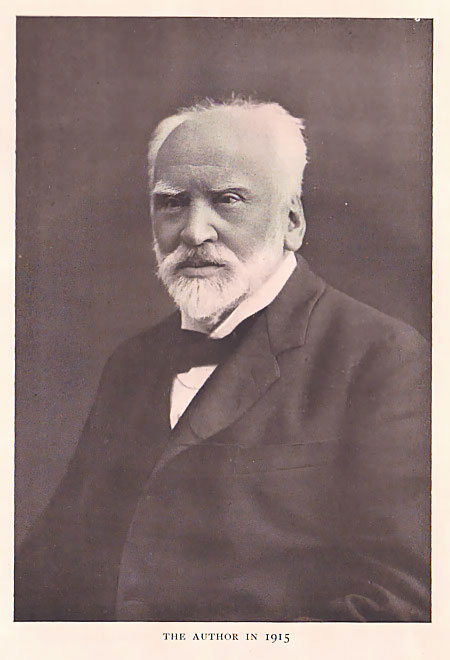 |
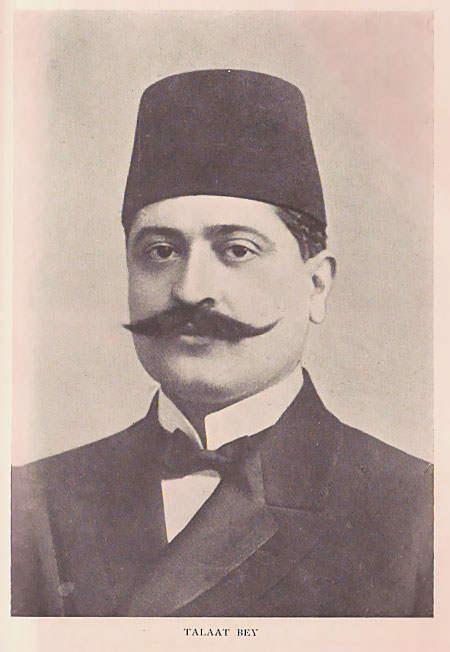 |
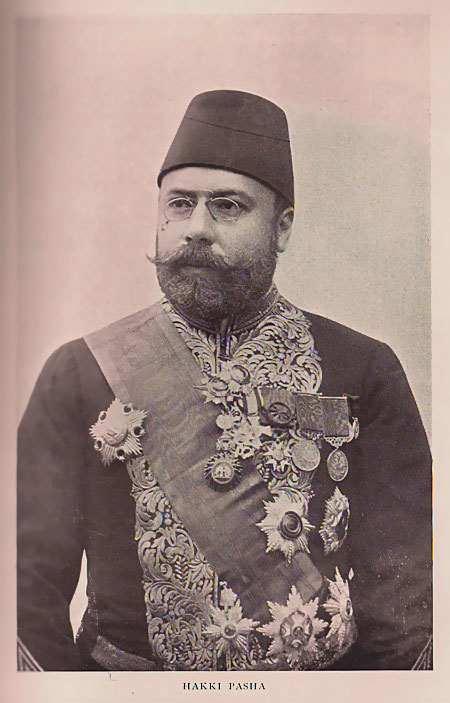 |
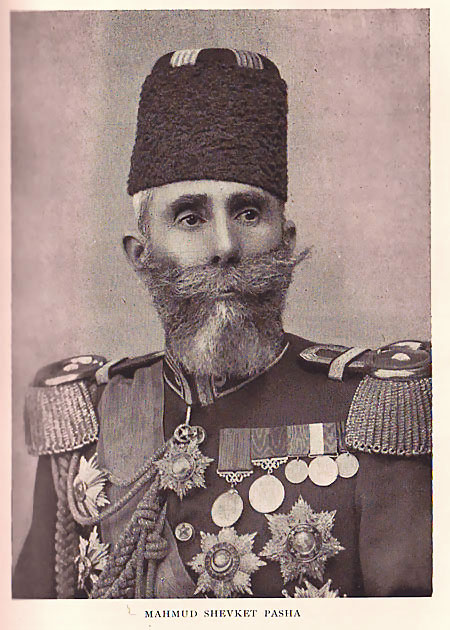 |
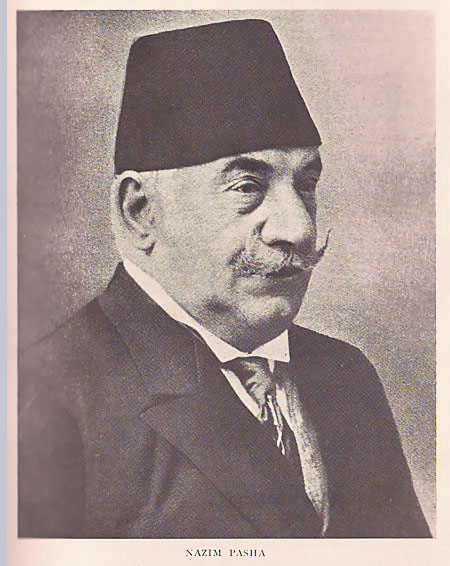 |
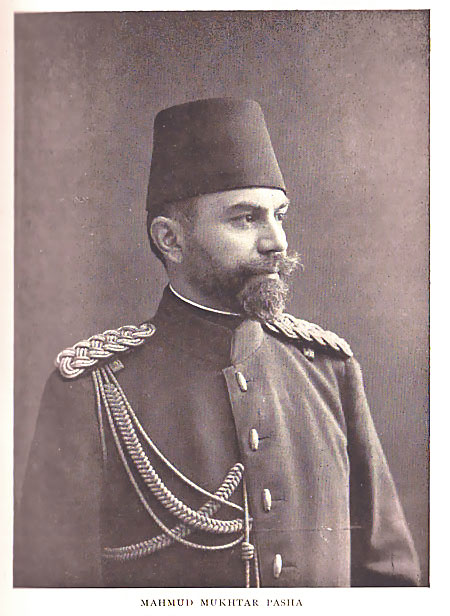 |
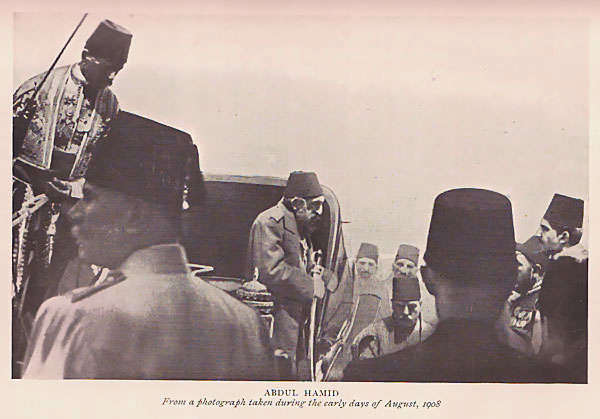 |
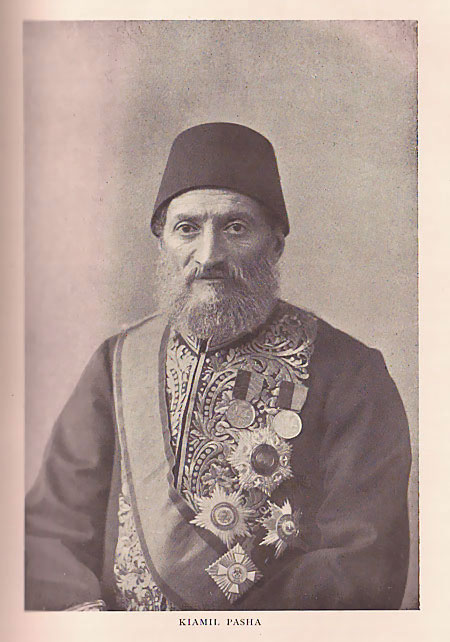 |
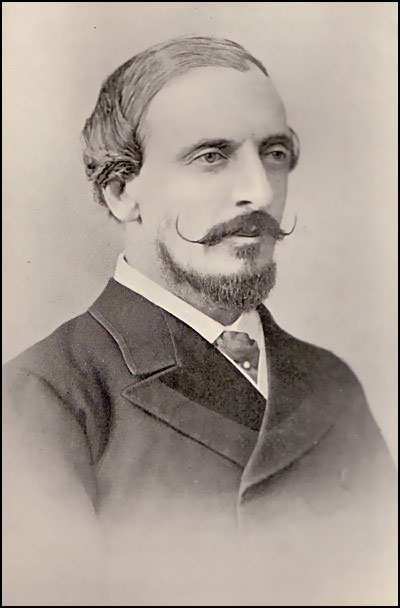 |
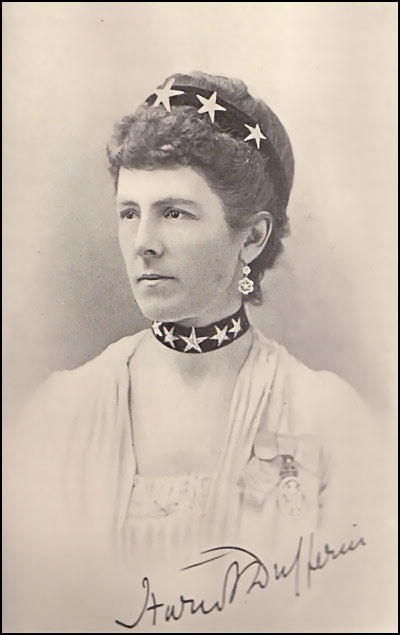 |
 |
 |
CHAPTER XXII
AUGUST-OCTOBER, 1914
The British Ambassador, Sir Louis Mallet, whose appointment dated from June, 1913, laboured under a series of disadvantages to which his German colleague was not subjected. Baron von Wangenheim had extremely competent interpreters or Dragomans. Nine months before the outbreak of the war we had at the British Embassy a Dragoman, Mr. Fitzmaurice, whose general intelligence, knowledge of Turkey, of its Ministers and people, and especially of the Turkish language, was, to say the least, equal to that of the best Dragoman which Germany ever possessed. His health had run down, and he had been given a holiday but when, I think in the month of February, 1914, Sir Louis Mallet returned to Constantinople, Mr. Fitzmaurice did not return with him, and was never in Constantinople until after the outbreak of war with England. It is said that he did not return because the Turkish Ambassador in London made a request to that effect. I do not know whether the statement is true or not. I think it probable that if such a request were made it was because Mr. Fitzmaurice did not conceal his dislike of the policy which the Young Turks were pursuing. In this respect he and I often differed, and have spent hours in discussing the policy of the Young Turks. But as his ability and loyalty to his chief is beyond question, and as he possesses a quite exceptional knowledge of the Turkish Empire, and had proved himself a most useful public servant, both in his investigation of the massacres in Armenia, at Urfa and other places, and at a later period in acting with the representative of the Indian Government in settling the boundary of the Aden district, it was nothing short of a national misfortune that he did not return with Sir Louis Mallet.
Though differing in opinion from Mr. Fitzmaurice, I invariably found him reasonable and well-informed; I had formed the highest opinion of his value as a Dragoman. It goes without saying that he would carry out any instructions which his chief gave him. It was therefore a matter of profound regret to everyone in Constantinople who knew that he had recovered from his illness, to learn that he was not permitted to return. For now, what was the condition of our Embassy when it had to strive against Baron von Wangenheim with his superbly equipped staff ? Sir Louis Mallet, so far as I know, had never had experience in Turkey. He did not know a word of Turkish. He had under him three Secretaries. Mr. Beaumont, the Counsellor, especially during the days in August before his chief returned from a visit to England, was busy almost night and day on the shipping cases, many of which passed through my hands. He also knows nothing of Turkish and had never had experience in Turkey. Mr. Ovey, the First Secretary, also had never been in Turkey, and knew nothing of Turkish. Unfortunately also he was taken somewhat seriously ill. The next Secretary was Lord Gerald Wellesley, a young man who will probably be a brilliant and distinguished diplomatist twenty years hence, but, like his colleagues, had no experience in Turkey. The situation of our Embassy under the circumstances was lamentable. The ever active Germans, arming Turkey as rapidly as they could, bringing in munitions of war and distributing them throughout the empire, defying international rules and treating the Porte almost as a negligible quantity, refusing to land the crews of the two famous ships; all under a strenuous Ambassador and a fully equipped staff of Turkish scholars to help him. The contrast between the two Embassies was all too marked.
p.138
Next to the Ambassador the First Dragoman is the Englishman of most influence in Turkey. Abdul Hamid, like his predessor and successor, practically knew no language except Turkish. His flatterers, even in English newspapers, sometimes spoke of his excellent knowledge of French. That he had a smattering of the language is undoubtedly true, but he could no more keep up a conversation in that language than he could have done in Chinese. There are many messages which have to be given to His Majesty, may explanations, many conversations arising incidentally out of the written or verbal communications which render it absolutely necessary that the representative of our Government should speak Turkish as well as he does English.
Mr. G. Fitzmaurice, the present First Dragoman, fulfils these requirements, and in addition had an exceptional knowledge of men and affairs. I remember him in his student dragoman days. He differed from most of his colleagues by passing a considerable portion of his time in the really Turkish cafés, by which I mean cafés frequented almost exclusively by Turks or Turkish subjects. In that way he acquired a knowledge of colloquial speech which is generally recognised as unsurpassed, and which no man can acquire by reading Turkish books.
Sir Alfred Sandison possessed the same kind of fulness of knowledge of Turkish. The son of a Scotsman, he had been born in Turkey, lived generally amongst the Turks, and was, to say the least, quite as familiar with Turkish as he was with English. Great confidence had been reposed in him by Sir William White and Lord Dufferin, and the only fault that I ever heard found with him was that he assumed too much authority and occasionally softened down messages which he considered likely to be offensive. ...
p.373
My recollection of visitors and friends in Constantinople recalls the inevitable result that a large number of them have joined the majority. It is impossible that one should have lived forty-two years in a city like Constantinople, of many nationalities, without forming attachments that are very dear. The British families, some of which have been settled in Turkey and who constitute colonies which by virtue of the Capitulations have preserved to each member his national character, are communities of which England may well be proud. At the outbreak of the present war thirty-three men in Constantinople, nearly all of good families, volunteered to fight for the King. I should think that fully half of them have now acquired commissions. Some bright young fellows with promising careers have become victims of the war. George V. has no more loyal subjects than the Englishmen settled in Constantinople and other places in the Turkish empire. I am proud of them.